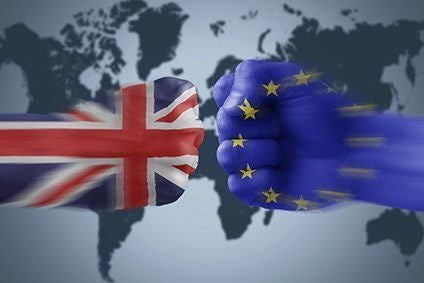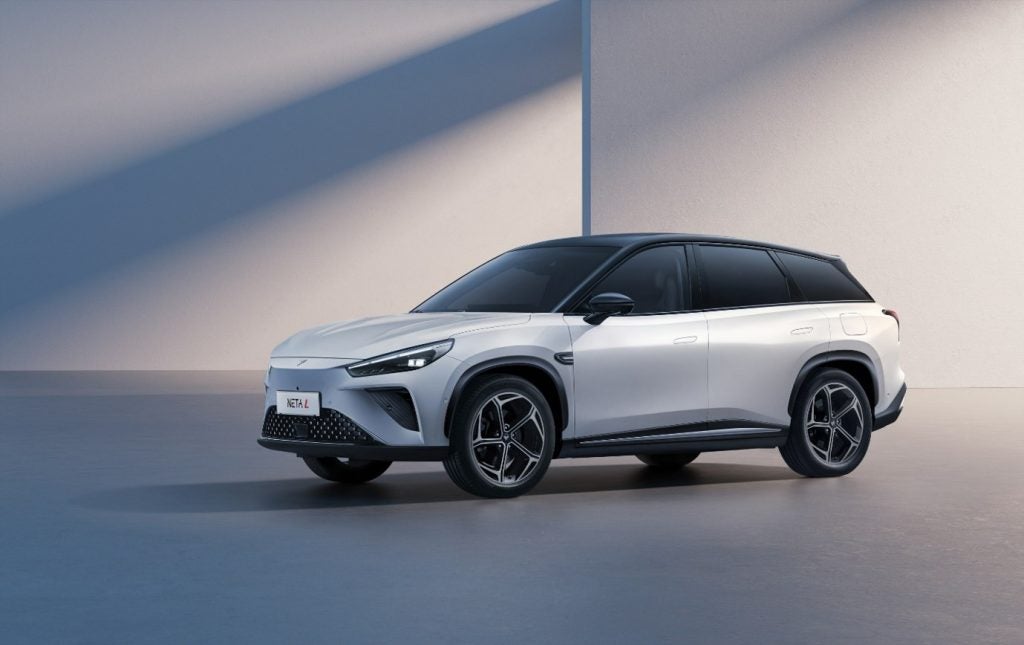
In the end it was a narrow result, but the UK’s voters have voted to leave the European Union. What are the implications for the automotive sector?
There are two main impacts for automotive companies to be concerned about. Firstly, there is the general impact on the UK economy, principally what happens to GDP and also what happens to the UK’s currency. And secondly, there is the question of trading relationships between the UK and the remainder of the EU.
On the general UK economy, the immediate impact has been a depreciation in the value of sterling versus other major currencies. That will put up import prices to British businesses and raise costs. But currency movements work both ways. Exporters will get a boost as their products become cheaper in export markets and repatriated profits converted to sterling are boosted. The Bank of England will be charged with managing the situation and will be concerned to get the balance right between curbing inflation due to cost-push from rising import prices and maintaining overall economic activity. Interest rate rises to shore up sterling look unlikely (but can’t be ruled out if sterling really collapses), but there is also not much room to cut interest rates to stave off the risk of recession either. Negative interest rates are a possibility, but a cut to zero is more likely scenario along with a loosening of monetary policy via quantitative easing. The Bank of England will be aiming to stabilise the markets and confidence. It may well have to do that with a new chief.
For UK car manufacturing operations, a cheaper pound helps in export markets. Aston Martin’s Andy Palmer was one of the few car company bosses to acknowledge during the referendum campaign that there will be a boost from a depreciated pound if it was to be a ‘Brexit’. Imports of parts, however, become more expensive. That rising cost on eurozone sourced parts will be more of an issue for some makers with lower margins and lower UK content (eg Vauxhall Astra) than others. The domestic/export split on final sales will be crucial. Coming back to the UK-sourced Astra, rising demand in eurozone markets this year will help. Premium makers also have more margin fat to play with. Aston Martin and Jaguar Land Rover cars, for example, sell with relatively high margins, so some hit on parts sourcing costs might be very absorbable. JLR has also worked hard in recent years to raise its UK level of sourcing.
Car brands that solely import cars to the UK will be disadvantaged by the fall in sterling. We know that one or two boardrooms in France and Germany – BMW makes cars in Britain through MINI and was especially vocal on preferring UK to stay in the EU – will be very disappointed with the result this morning. On the plus side, eurozone car markets are picking up strongly, so the need for some OEMs to ship more volume to the UK – a clear trend when the eurozone debt crisis was at its height and the sterling-euro exchange rate was favourable – is not what it was.
See Also:
What about the general economy? Will there be a recession, induced by a loss of consumer and business confidence? This was much talked about during the referendum campaigning, but the talk during the campaign was clearly a part of the campaign itself. No-one really knows what the immediate impact on the real economy will be. This will become a little clearer in the coming weeks.
How well do you really know your competitors?
Access the most comprehensive Company Profiles on the market, powered by GlobalData. Save hours of research. Gain competitive edge.

Thank you!
Your download email will arrive shortly
Not ready to buy yet? Download a free sample
We are confident about the unique quality of our Company Profiles. However, we want you to make the most beneficial decision for your business, so we offer a free sample that you can download by submitting the below form
By GlobalDataSingle market access
A major issue ahead is the UK’s trading relationship with the EU and it’s a big issue for the UK economy because a high proportion of UK exports go to the EU (estimates vary, but it is certainly more than a third). Currently, the UK trades freely and tariff-free with its EU neighbours as part of a customs union and what is termed ‘the single market’. The EU is a trade bloc and ease of trade is at the heart of the reasons for its creation. When nations trade goods and services, the laws of economics and comparative advantage boost economic activity and incomes. The EU project to underpin rising trade with greater economic integration – the cross-border free movement of labour and capital, a shared currency – has been far from smooth, but it goes on. Can the UK still enjoy the benefits of free trade with the EU as an outsider? The EU ‘club’ has yet to work out its response to the UK’s new position, but a club that said ‘that’s fine, carry on as before and have the benefits of market access without the costs’ would risk encouraging other countries to behave as the UK has done. Against that, many companies in mainland Europe will want to continue to trade with the UK and don’t want to see the costs of doing so to rise too much – they will already be taking a hit from sterling’s depreciation.
No-one knows how this will ultimately play out. Some have said that Norway and Switzerland are examples that could be followed, as they are outside of the EU and enjoy free trade with the EU. Switzerland’s position is a little complicated and governed by a number of bilateral agreements. Some sectors of its economy are not covered (services, for example). It’s a kind of a-la-carte approach and the Swiss have no say in EU rules that they have to adopt. Similarly, Norway pays in to the EU budget and gets access to the single market on a comprehensive basis, but must follow EU rules and has no say in their generation. In both cases, they are free to negotiate trade deals independently of the EU.
Could the UK follow, say, the Norwegian model and continue to be a part of the single market? Possibly, but it looks problematic. The campaign to leave the EU had immigration at the core of its message, so complete freedom of movement for people in the single market would be a sticking point for the UK, as would paying in – at least at current levels – to the EU budget. These things were at the heart of the leave campaign. So the UK will be trying to negotiate a free trade deal of sorts. On the other side, there will be a realisation that the UK is a major nation and economy next door and trade will continue. However, completely free trade on all goods and services as now but without paying into the EU budget or agreeing to free movement of people is probably a non-starter. Brussels is going to want to impose some costs on the UK as it has chosen to be outside of the club and outside of the project for closer European economic integration. Some form of compromise may eventually emerge, but it will take some negotiating.
Uncertainty for how long? Er, that’s uncertain
And this brings us to another big question. How long will it take to negotiate a new trade deal between the UK and EU? The terms of the UK’s departure from the EU will be triggered by a process that takes two years, in theory. There may have to be extensions. Some have forecast that a trade deal – that has to be ratified by 27 EU member states – could be a particularly tortuous one to complete. A free trade deal between the EU and Canada has taken eight years to do and is still not finally done. But the UK is meeting EU standards as an EU member, so the comparison with Canada is perhaps unfair. One OEM with UK manufacturing operations told me 3-5 years for a trade deal to be done is their best estimate. There is also the possibility of a breakdown at some point and the UK having to revert to WTO trade rules. That’s something of a nightmare scenario for UK manufacturing operations because it means 10% tariffs on cars exported from the UK to the EU. The counter argument has been that no-one wants that, least of all Germany that sells so many cars to Britain and would lose out from reciprocal tariffs imposed by the UK.
Right now, the UK is still inside the EU and inside the single market. It could be a ‘soft’ or a ‘hard’ exit. For now, UK car manufacturers can carry on making cars and shipping to the EU tariff-free, business as usual. Will future investment be impacted? Uncertainties are not good for investment decisions. But the UK’s trading relationship with the EU is one factor in the mix. There are always uncertainties regarding economies. Forecasters can be relied upon to get things wrong. Car companies that have sunk huge sums in manufacturing capacity don’t decide to up sticks and put it somewhere else overnight. The UK is the world’s fifth largest economy sitting on the edge of Europe and with its own currency. Operations in the UK – making cars or engines – still work as a natural currency hedge. The competitive challenge for companies with UK manufacturing operations could well be tougher in the future – costs on UK-EU trade higher – but there is also a global landscape and mix that determines relative competitive positions for companies and plants.
This morning there are serious questions about future trading conditions between the UK and Europe, but these questions have to be seen in perspective. Trade will continue, even as the uncertainty persists. It’s a new dawn in some ways, perhaps, but the sun still rises in the east and sets in the west, as it did before.







